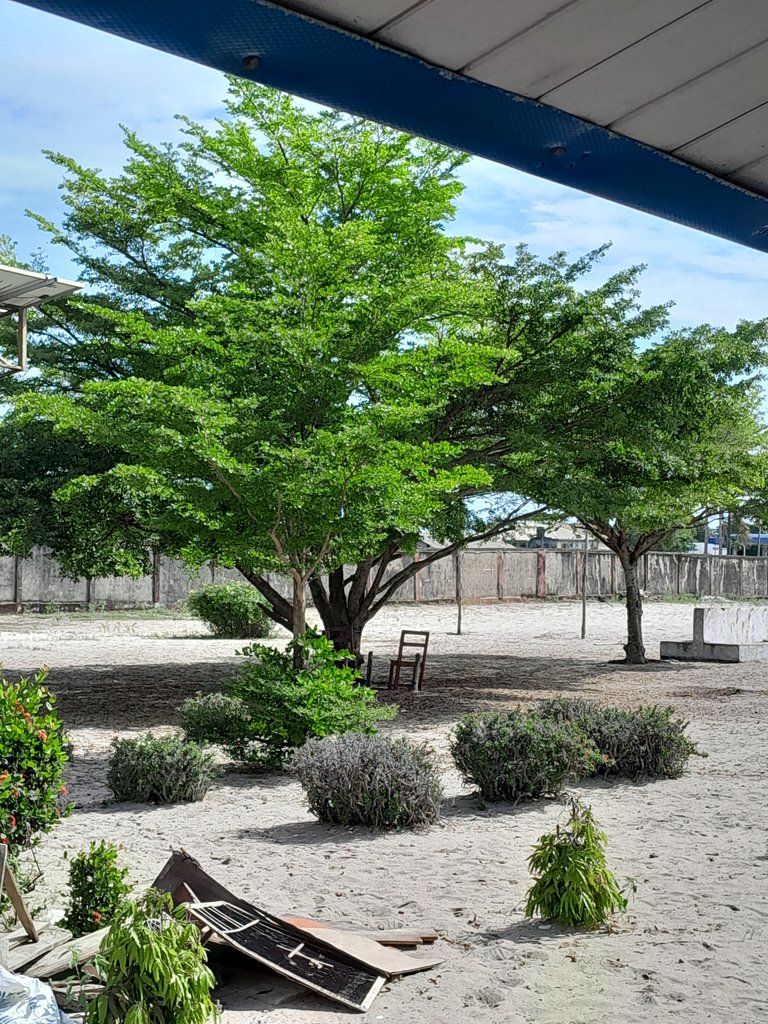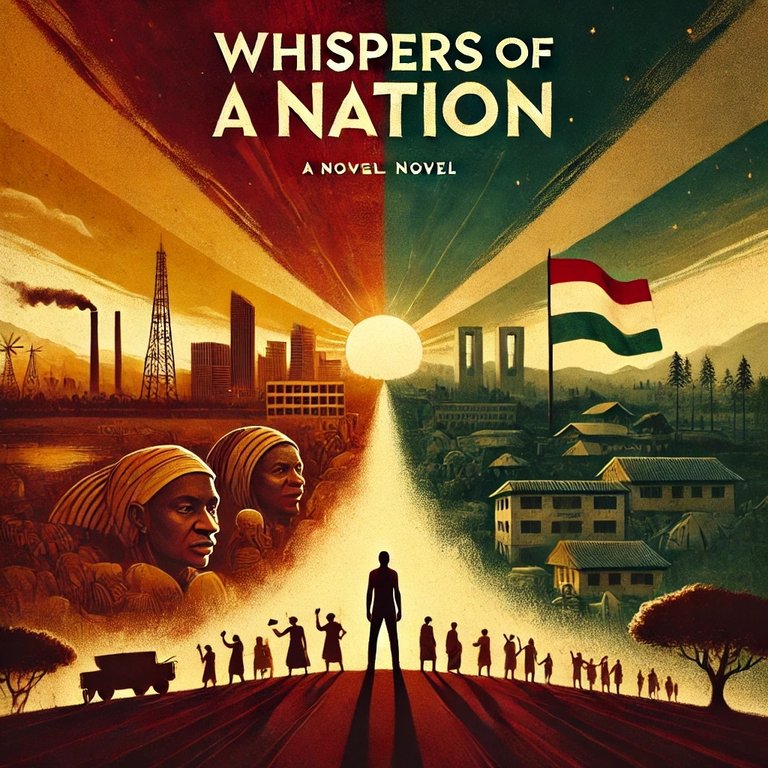The midday sun hung high over Ibadan as it cast long shadows that danced along the dusty streets. Far from the relentless pace of Lagos, Ibadan had its own quiet rhythm. A city steeped in history, its people carried with them the stories of a nation ; both the pride and the pain. For Suleiman, the air here felt different, less suffocating, though it did little to ease the weight on his heart.
He had traveled from the north, hoping to find peace in this city of scholars and ancient warriors. The insurgency had torn through his village, leaving behind voice of lost lives and scattered dreams. The school where he worked that was once a beacon of hope, now stood empty. Aisha had insisted he go south, if only for a brief respite.
“You need a break, Suleiman,” she had said, her brow furrowed with concern. “We can’t keep fighting a battle when our spirits are as battered as our bodies.”
Now, walking through Ibadan’s winding streets, Suleiman wondered if Aisha had been right. The city felt different, almost untouched by the chaos that plagued the north. Children ran barefoot, laughing, chasing after a weathered football as if the world outside didn’t exist. The air here didn’t carry the weight of gunfire, the screams of the displaced, or the uncertainty that had become his everyday life. Yet, even in this seeming peace, Suleiman sensed something — a quiet unrest beneath the surface, like the slow rise of a tide that no one notices until it crashes.
He found himself drawn to the central market, a maze of colourful stalls where traders peddled everything from yams to fabric. The chatter of the market swelled around him, but his thoughts lingered on the faces of his students. Fatima, with her bright eyes, and the others who had trickled in despite the danger. What future did they have in a country that seemed to turn against its own?
As he navigated the stalls, Suleiman’s gaze fell on a young boy sitting by the roadside, scribbling furiously on a piece of paper. His clothes were worn, his shoes barely held together, but his face was set in concentration, as if the world depended on the words he was writing.
Suleiman crouched beside him. “What are you working on, young man?”
The boy looked up, startled but curious. He clutched the paper to his chest, as if protecting a secret.
“I’m writing a letter,” he said, his voice soft.
“A letter? To whom?”
The boy hesitated before replying. “To my father. He’s... he’s not here.”
Suleiman’s heart clenched. He had seen this too many times — children left behind by fathers who had fled or fallen, caught in the crosshairs of a war they didn’t start.
“Where is your father?” Suleiman asked gently, though he suspected the answer.
The boy’s eyes clouded with uncertainty. “He went north to find work. He said he’d send for us, but... it’s been two years.”
Suleiman swallowed the lump in his throat. “And your mother?”
The boy’s face darkened. “She’s sick. I’m trying to save enough to buy medicine. That’s why I help in the market.”
Suleiman nodded, his gaze shifting to the boy’s letter. He knew the pain of waiting for a father who might never return, the hollow hope that clung to every word of a promise unfulfilled.
“Do you go to school?” Suleiman asked.
The boy shook his head. “I used to. But there’s no time now. The market is more important.”
Suleiman stood, his chest tight with a mix of anger and sorrow. The insurgency had torn apart families, but poverty, too, was its own form of violence, a quieter one, but no less deadly. He placed a hand on the boy’s shoulder. “Keep writing,” he said softly. “Your words are more powerful than you know.”
As Suleiman left the market, the boy’s face lingered in his mind. He felt the pull of responsibility, the urge to do something, but he was just one man in a nation full of broken promises.
As evening approached, Suleiman made his way to the University of Ibadan, where he had been invited to speak at a small gathering. The university’s sprawling campus felt like a different world entirely — lush trees lined the walkways, and students moved with purpose, their faces full of hope for a future they believed they could shape. It was a stark contrast to the reality of so many outside its gates.
In the lecture hall, a small crowd had gathered. Professors, students, and activists sat in quiet anticipation. Suleiman had been asked to speak about education in conflict zones, a topic that was close to his heart but painful to discuss.
As he took his place at the front of the room, the faces staring back at him seemed expectant, hopeful even. But Suleiman knew that words alone wouldn’t change the course of the nation.
He began, his voice was steady but laced with emotion. “We speak of education as a path to a better future, but what happens when that path is blocked by fear? What happens when children, like the ones in my village, are too afraid to leave their homes, let alone come to school?”
The room was silent, the weight of his words sinking in.
“Education,” he continued, “isn’t just about learning to read or solve equations. It’s about hope. It’s about giving children the tools to imagine a life beyond the violence that surrounds them. But how do we give them hope when the world they know is crumbling?”
He paused, letting the question hang in the air. “In the north, I’ve seen children brave enough to attend school even when they know they could be attacked at any moment. I’ve seen teachers like Aisha, who wake up every day, ready to fight for these children, even when it seems like the world has forgotten them.”
The faces in the room remained solemn, absorbing the gravity of his words. Suleiman felt the familiar ache in his chest, the weight of responsibility pressing down on him. He wasn’t just speaking to these people; he was pleading with them.
“We cannot turn a blind eye,” he said firmly. “We must remember that every child we fail to educate is another child lost to the cycle of poverty and violence. We owe them more than that.”

When he finished, there was a long silence before the audience erupted into applause. Suleiman nodded in thanks but felt no sense of victory. The applause wouldn’t save the boy in the market, or Fatima, or the countless others who had been robbed of their futures.
After the gathering, a young woman approached Suleiman. She introduced herself as Ifeoma, a student studying political science.
“Your words moved me,” she said. “But how do we change things? How do we give hope when it feels like everything is falling apart?”

Suleiman smiled, though it was tinged with sadness. “We start with one child at a time, one school at a time. We may not change the world overnight, but we can plant seeds of hope. And sometimes, that’s all we can do.”
Ifeoma nodded, her eyes determined. “Then I want to help. However I can.”
Suleiman placed a hand on her shoulder. “Your willingness to help is a start. Keep that fire alive.”
As he left the university and walked back through the quiet streets of Ibadan, Suleiman couldn’t help but feel the tide shifting. It was slow, almost imperceptible, but it was there — the silent tides of change, rising beneath the surface.
And with each step, he reminded himself that even the smallest ripple could grow into a wave.